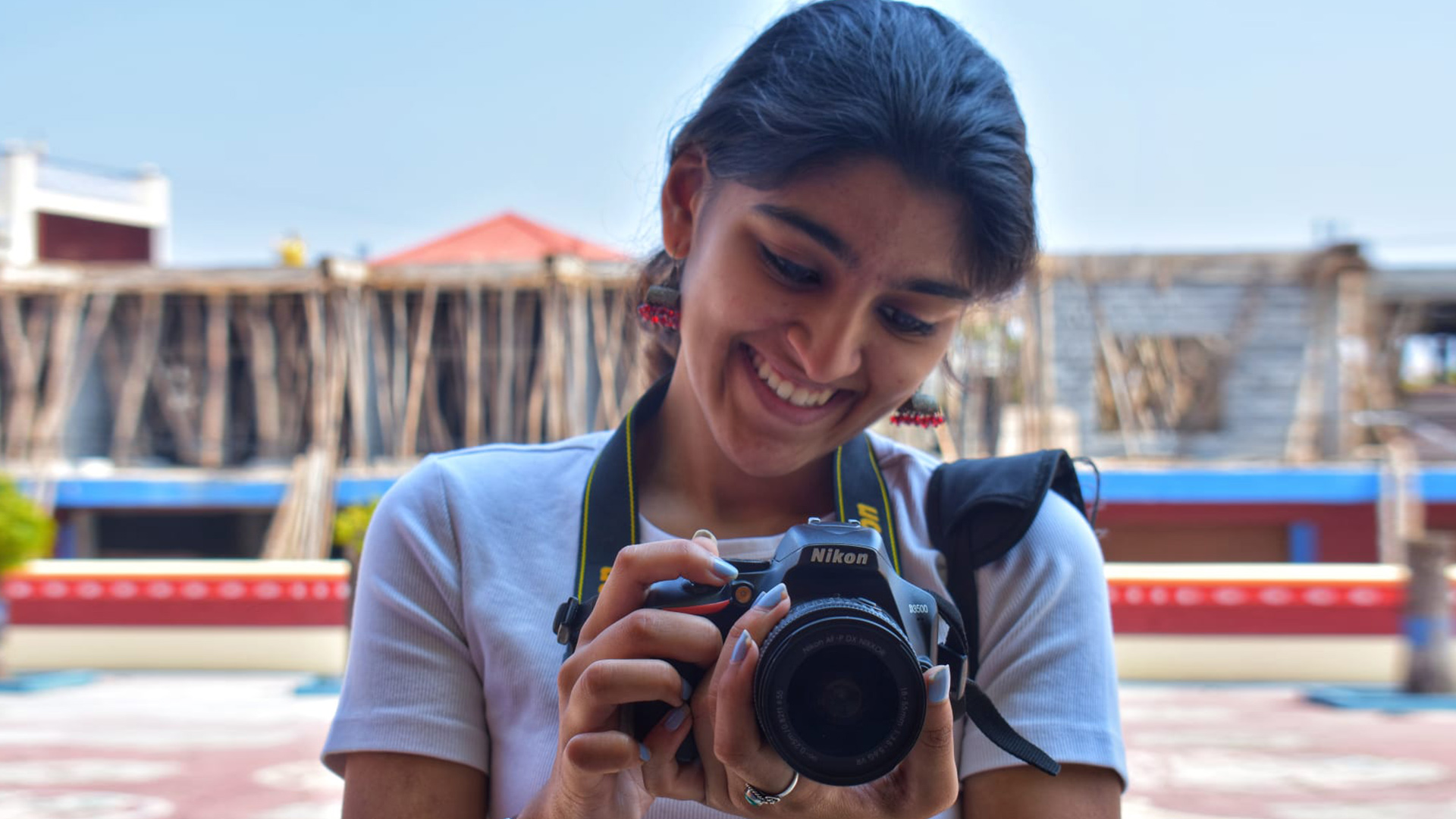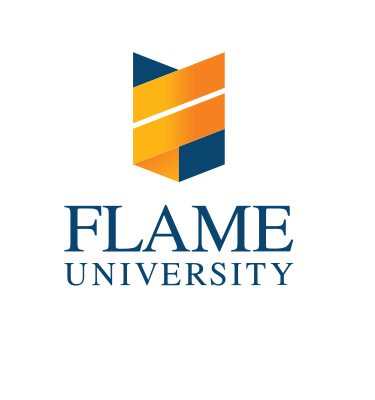VOICE OF FLAME
Exploring the Real World through Discover India Program
25 Apr 2023 | Author: Branding & Communications Team |

Exploring the Real World through Discover India Program
Exploring new ideas and critically approaching challenges in the real world are the cornerstones of liberal education.
An integral part of learning new skills is exploring things beyond the walls of the classroom. To help students gain a fresh perspective and enable them to think critically and creatively, FLAME University has designed a unique experiential program that enables them to think beyond the set ideas of classroom learning.
The Discover India Program (DIP) is a mandatory program for undergraduate students that focuses on exploring the essence and challenges of the real world.
The program focuses on exploring the diversity of India, its distinctive culture, communities, traditions, practices, wildlife, ecology, historical achievements, antiquated and towering infrastructure, multifarious festivals, varied occupational activities, and everything that makes it culturally rich and unique.
DIP focuses on exploring the diversity of India, its distinctive culture, communities, traditions, practices, wildlife, ecology, historical achievements, antiquated and towering infrastructure, multifarious festivals, varied occupational activities, and everything that makes India culturally rich and unique. Students are guided to understand the variations associated with the unique social and economic institutions, livelihoods, and different ways people lead their lives in geographically remote areas of India.
Experiencing India’s Rich Heritage with the Discover India Program
India is a country with a rich cultural heritage, and exploring its diverse cultures and traditions can provide a unique experiential learning opportunity for students. Through the Discover India Program, students engage in hands-on activities that allow them to learn about India's history, art, handicrafts, culture, and traditions of various communities.
Experiential learning through the Discover India program helps promote cultural awareness and sensitivity. By experiencing different cultures firsthand, students gain a deeper appreciation and understanding of different customs, beliefs, and traditions.
Fostering exploratory learning and innovative thinking
Project formulation, research, fieldwork, documentation, and working with a team are all essential parts of learning for a student.
The Discover India Program plays a vital role in nurturing an environment that promotes critical thinking and innovative solutions on a real-time basis. The program works on outcomes that are a result of extensive research, including analyzing data, working on documentation, conducting interviews, building interactions, and presenting findings in a competitive setting.
The Discover India Program is divided into mandatory stages to be completed by each student group before it reaches the culmination stage.
The different stages of the Discover India Program:
- Dividing the students into teams
The primary step for the commencement of the program involves forming a group and choosing a faculty mentor who accompanies and guides the students throughout the program. A list of faculty mentors and their general areas of interest is made available in advance to all students. The program requires the students to form a group of 12 to 13 members and select a topic of interest aligned with the expertise of their faculty.
This group of students is expected to nominate a group representative who acts as a point of contact for both the faculty and the students.
Each group is expected to be equipped with students who can take charge of the following departments:
- Photography
- Videography
- Logistics and accounts
- Creative execution
- On-field research and surveys
- Report writing
- Selecting the topic
Each group is given the liberty to choose the topic of their interest and approach the faculty mentors who match their field of study. The groups discuss their plans and the projects of their interest with the faculty, based on which the faculty decides if they can mentor the group. In this process, the committee does not influence the decisions of the students in any way.
- Researching the topic
Before starting the fieldwork, students are expected to prepare the objectives of their research and define their strategies in a written format and present them to the committee. The students also identify resources for relevant information in the form of books, articles, films, etc.
Students develop questionnaires for the fieldwork and take help from the extensive literature available at the FLAME Vivekananda library.
- Pre-fieldwork planning and presentations
The students must conduct primary research, plan their expenses as per a fixed budget and present their tasks and roles before conducting fieldwork.
Here is the list of prerequisites:
- Conduct online expert interviews, test surveys, etc.
- Draft the first three chapters of the program: literature review and methodology
- Prepare a pre-fieldwork presentation
- Plan travel and accommodation logistics
- Assigning tasks and allocating roles
- Academic or administrative tasks
- Orientation Session and Hand-On Masterclasses
Before commencing the fieldwork, all students are expected to attend orientation sessions conducted by the program committee to explain their academic and ethical responsibilities. Separate sessions are held for the group representatives to explain to them the responsibilities of being the group’s point of contact amongst all stakeholders and brief them on all relevant protocols and emergency guidelines.
The group is also expected to attend mandatory masterclasses to understand specific skills required during the program, which include sessions on:
- Research proposal and report writing basics
- Conducting research online
- Research Methods: Qualitative and Quantitative
- Research ethics and field etiquette
- Photography: planning and camera basics
- Documentary making
- Audio-videography: editing
- DIP accounts and logistics planning
Faculty have separate orientation sessions to brief them about the structure of the program and the overall expectations of the group.
- Fieldwork
Once the students are prepared with their pre-fieldwork requirements and have detailed itineraries and logistics approved by the committee, the groups, along with their faculty mentors, commence their journey.
The students are required to make their own travel and accommodation arrangements in advance. The task is assigned to the students responsible for managing the logistics.
Each student group is required to plan their schedule for all days in advance while keeping in mind the tasks: data collection, interviews, surveys, documenting videos and photos for the final documentary, etc.
-
Presenting the final data and analysis
After each student group completes the task of collecting data and gathering information from all the resources, they are expected to compile the data and present their findings to the committee.
The group also presents a final documentary to share their findings and analysis from the fieldwork for the committee to grade.
- Discover India Program: A Medium for Overall Development
The Discover India Program focuses on group-based research in which a team of students from diverse specializations works together under the guidance of a faculty member to address an issue or solve a problem that is relevant to society, technology, business, or any other aspect of life.
The program is designed to provide broader abilities and skills to work in a real-world setting and employ important skills such as critical thinking, communication, problem-solving, research, teamwork, etc. along with specialized knowledge and contextual understanding learned over their education at FLAME, apply it in practical contexts, and provide actionable solutions to pressing issues.
Also Read: Rediscovering India's Cultural Heritage: Discoveries and Reflections from DIP '23
(Author: Branding & Communications Team)






